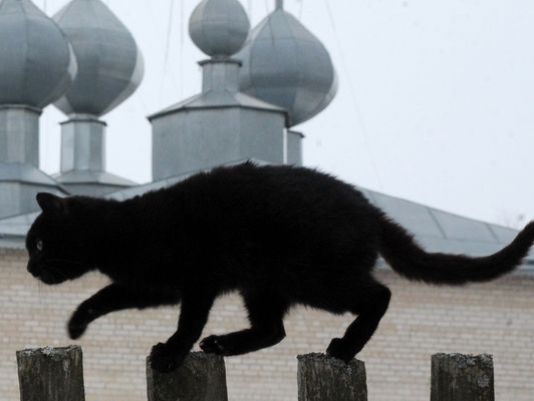Are you superstitious?
If so, you might be thinking about how the 13th day of the month lands on a Friday in October (a month of notable spookiness in its own right). And on Friday the 13th, you might be more likely to notice small events you might easily ignore any other day.
Hit every red light on your way to work? Bad luck. Your favorite sports team lost the big game? More bad luck. Notice a black cat down the street? You must be one unlucky individual.
Those things happen every day of the week, but we don’t focus too much on them, unless we have a reason to take notice, mental health experts say.
Is pop culture to blame?
Caitlin Baldauff is a mental health therapist at North Central Health Care in Wausau, Wis. She said the fear of Friday the 13th is ingrained in western culture and enforced by pop culture.
Pop culture has definitely emphasized the trepidation behind Friday the 13th. Hollywood created a whole horror movie franchise — featuring the tenacious and hard-to-kill Jason Voorhees — around the day and solidified a little more fear associated with the day, Baldauff said.
But again, that fear of Friday the 13th is not universal. Shanny Luft, chairman of the philosophy department and an associate professor of religious studies at the University of Wisconsin-Stevens Point, said in Spanish-speaking countries, the "Friday the 13th" movies were retitled "Martes 13" — meaning Tuesday the 13th. Tuesdays are considered unlucky in those countries, he said. Also, the number 17 is unlucky in Italy instead of 13, he said.
Both Luft and Baldauff pointed to a 1907 novel called Friday, the Thirteenth by Thomas W. Lawson. In the book, Lawson wrote about a New York City stockbroker who creates chaos in the stock market that almost ruins Wall Street. After the book came out, people latched on more to the idea that Friday the 13th is ominous.
America has a negative association with Friday and a separate aversion to the number 13. Many towns avoid naming a 13th street, and many skyscrapers skip a 13th floor, Luft said. People avoid each occurrence separately, but the combination of the two is relatively newer.
Are there origins in religion?
While definite origins of the Friday the 13th superstition are unknown, many articles and research papers point to Christianity. Thirteen people attended the Last Supper: 12 disciples and Jesus. The following day — a Friday — Jesus was killed, Baldauff said.
Not everyone is convinced of religious ties, however. Luft said while fears of the number 13 and Friday are common in America, nothing in the Bible suggests aversions to either during the years the book covers or the centuries following.
... Or is it all inside your head?
Baldauff said psychologically, many superstitions are attached to being either in control or out of control. Some superstitions, like avoiding stepping on cracks or a routine for good luck in a sporting event, are all about control, while other superstitions like Friday the 13th make people feel out of control.
Anytime there’s a feeling or superstition of in control or out of control, anxiety is there, Baldauff said.
There’s some sort of threat or chance of failure,” Baldauff said. “There’s perceived danger, and anxiety tells us to be extra careful.”
Luft said it’s easy to find negative associations with any number throughout history if you look hard enough. The professor pointed to Apollo 13’s malfunction on April 13, 1970, and American rapper Tupac Shakur’s death on Sept. 13, 1996. While you can find negative associations, you can easily find positive ones, as well. In Judaism, coming-of-age rituals happen at the age of 13, Luft said.
"We probably won't ever discover the origin of Friday the 13th," Luft said. "Our superstitions reveal the extent to which human beings are driven to perceive causes and effects. They help us make sense of the world. And seeking relationships between a cause and an event is a healthy impulse; it’s the starting point of both religion and science.”
Testing your luck on Friday the 13th?
When it comes to gambling on Friday the 13th, the Oneida tribe isn’t one to hedge its bets.
When a Friday the 13th pops up on the calendar, the tribe’s Wisconsin casinos won’t let silly superstitions get in the way of a good time. They offer a promotion they call the Power of 13. It provides $10 of free play to Players Club members who can earn 13 base points playing slots, tables, bingo and poker. They also put on a $13 steak and shrimp dinner.
A good deal trumps superstition every time: The casinos see a 40% increase in loyalty card players.
Follow Caitlin Shuda on Twitter: @CaitlinShuda


